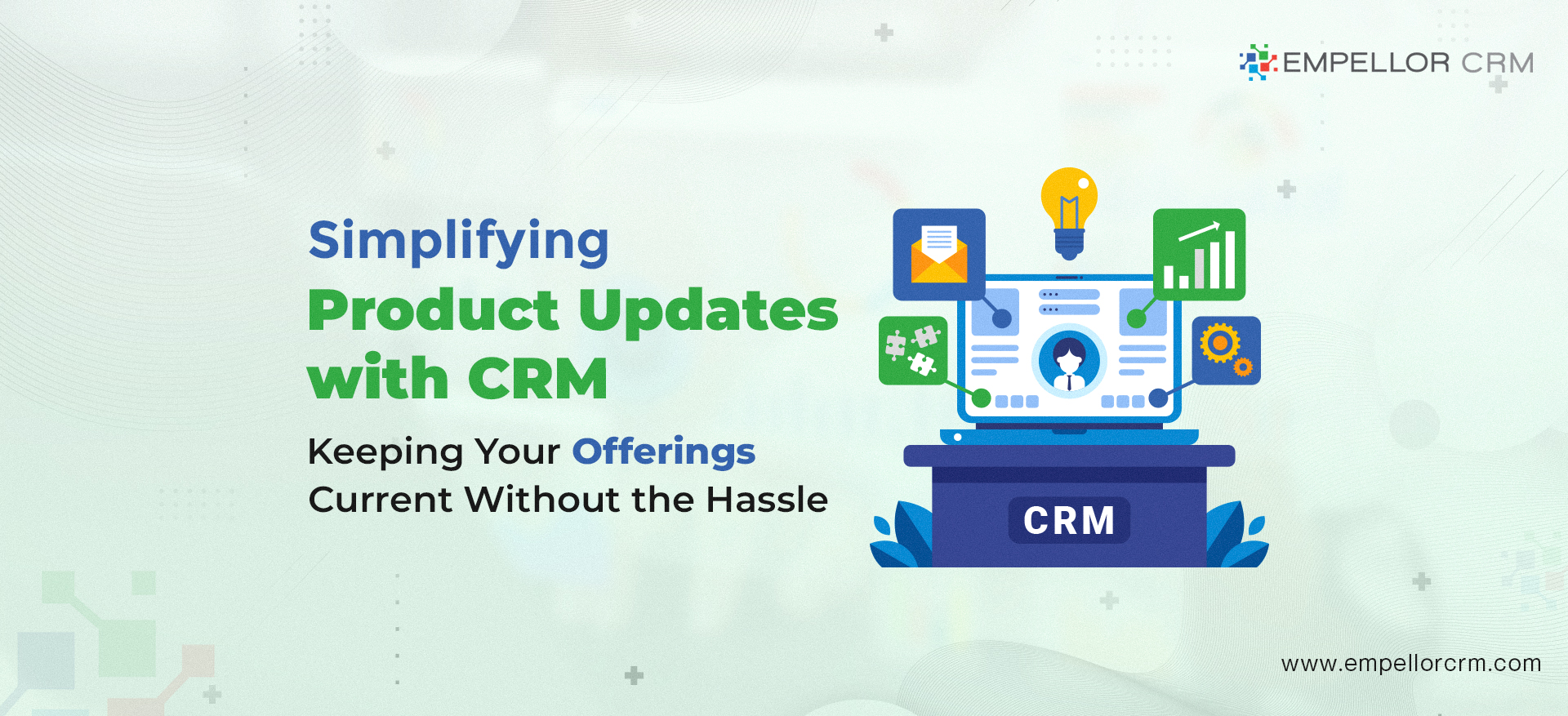In today’s fast-paced business environment, keeping your product offerings current is crucial to staying competitive. Whether it’s new features, discontinued products, or changing service packages, manually managing these updates can quickly become overwhelming. However, product updates with CRM provide a streamlined solution. As businesses scale and product lines grow, using outdated methods like spreadsheets becomes more of a liability than a tool.
When product updates are slow, inconsistent, or inaccurate, it directly affects your business. Sales teams may quote the wrong products, marketing might promote outdated services, and customers will grow frustrated when they aren’t offered the latest options. This creates an operational bottleneck that can stall growth and erode customer trust. However, there is a solution: a properly implemented Customer Relationship Management (CRM) system can take the pain out of managing product updates, ensuring that your offerings remain current and your processes stay streamlined.
Let’s explore how a CRM, like Microsoft Dynamics 365, can revolutionize how you manage your product catalog.
1. Centralized Product Catalog for Consistent Updates
The first step in simplifying product updates is having a centralized catalog that everyone in your organization can access. In many companies, product information is scattered across various platforms, spreadsheets, and documents, making it difficult to keep everything consistent. A CRM solves this problem by serving as a single source of truth for all your product offerings.
When a change occurs, whether it’s a price update, a new version, or discontinuation, the update can be made in one place, and the entire organization—from sales to customer service—immediately has access to the latest information. No more chasing down the right data or sending correction emails. A CRM allows everyone to work off the same, accurate catalog, ensuring that your team can deliver consistent results.
2. Automated Product Updates Save Time and Reduce Errors
Manually updating product catalogs is not only tedious but prone to mistakes. A CRM can automate this process. With integrations to vendor systems or other internal platforms, your CRM can automatically pull in updates—whether it’s new features, pricing, or product specifications—and apply them to your catalog.
For example, let’s say a vendor releases a new product version or changes the pricing model. Instead of manually updating multiple documents, the CRM can automate this process, keeping your entire system up to date without you lifting a finger. This automation reduces human error, ensuring that your team always works with the most accurate information.
3. Improving Sales Accuracy and Speed
Accurate product information is critical for sales teams. When your team quotes products that are outdated or unavailable, it not only damages your credibility but can also result in lost deals and frustrated customers. By using a CRM to keep your product catalog updated in real-time, you ensure that your sales team has access to the latest offerings and pricing.
With accurate, up-to-date product information at their fingertips, your sales reps can confidently quote deals and move prospects through the sales cycle faster. There’s no more need for back-and-forths with pricing teams or double-checking product availability, allowing your team to focus on closing deals rather than fixing errors.
4. Enhanced Customer Experience
Today’s customers expect a seamless experience, and outdated product information can lead to a breakdown in trust. Imagine a customer discovering that the product they were quoted is no longer available, or the pricing they received is incorrect. These issues frustrate customers and drive them to competitors.
A CRM ensures that your customers are always offered the right product at the right price, improving their overall experience with your company. When customers feel confident that they’re getting the latest offerings and correct pricing, their trust in your business grows—leading to longer-lasting relationships and more repeat business.
5. Simplified Product Launches and Marketing Campaigns
Launching new products is a complex task that requires coordination across multiple teams. A CRM simplifies product launches by ensuring that every team—sales, marketing, customer service—has access to the new product details as soon as they’re available.
For example, when you launch a new service or product, your marketing team can quickly build campaigns around it, your sales team can begin quoting it to customers, and your support team can prepare for inquiries, all based on the latest product information stored in the CRM. This level of coordination allows for a smoother and faster go-to-market strategy, helping you capitalize on new product launches quickly.
6. Future-Proofing Your Product Management
With technology and markets evolving rapidly, staying ahead means being prepared for constant change. A CRM provides the infrastructure you need to future-proof your product management. It integrates seamlessly with other tools, offers scalability as your product lines grow, and ensures your team can keep pace with industry changes without missing a beat.
Conclusion: Don’t Risk Falling Behind
The pace of business is accelerating, and your competitors are continuously improving how they manage their product offerings. If you continue relying on outdated methods like spreadsheets or manually updating catalogs, you risk falling behind. Your product information will become outdated, leading to missed sales, frustrated customers, and lost revenue. In today’s competitive market, the inability to keep your offerings current could cost you more than just a few deals—it could damage your reputation.
Empellor CRM has helped countless businesses just like yours transition to a more efficient, automated way of managing product updates. With our expertise in implementing Microsoft Dynamics 365 and integrating automated product management tools, we can help you stay ahead of the curve.
Contact Empellor CRM today to learn how we can get you out of the product update trap and on the path to greater efficiency and success. Don’t wait—take control of your product offerings now, before your competition leaves you behind.



